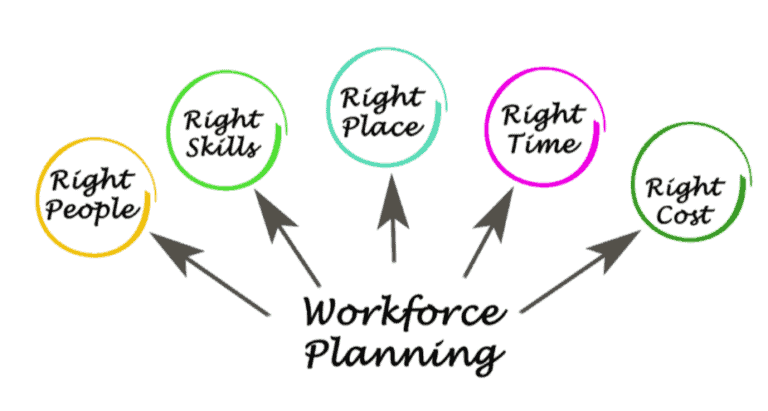One day we were working toward 2020 growth goals with little knowledge of the coronavirus. Unfortunately, the pandemic uprooted most of our plans. Some businesses face massive layoffs while others need additional resources on a limited budget. Where do you start if you need more help? We suggest a flexible workforce.
If you suddenly require additional hands, you are not alone. Many industries have positions to fill. Wal-Mart wants 150,000 temporary employees. The rapid increase in remote workers means companies like Zoom and Microsoft are hiring, too. According to The New York Times, “The volume of food and paper products passing through a warehouse just outside Los Angeles is up 30 percent from the same time a year ago.”
We see consumer packaged goods, grocery stores, e-learning companies, and many other industries looking to supplement their workforce with alternative talent solutions. In uncertain times, full-time employees may not be the best solution. Organizations are considering contract staff over W2 employees because they are less costly, have expertise in the field, and can pitch in quickly.
Benefits of Flexible Workers
We do not know the extent of damage this virus will leave on our economy. However, we do know that contract workers provide a flexible workforce that can accommodate our changing business demands. For many companies, contractors provide the ideal solution:
- Controlled cost. Employers can manage costs on a week-by-week basis. Contractors are used to shifting work schedules. You may require ten hours one week and twenty hours the next. Or your budget may fluctuate. Either way, be transparent about the workload with your contractor.
- Minimal benefits. Contractors do not require benefits. Most full-time employees get some mixture of benefits like health insurance, retirement plans, bonuses, profit-sharing, and more. You will not need to provide these perks to contractors. Remember, some recruiting firms shoulder the burden of benefits by offering their hires retirement plans and health insurance.
- Flexibility. Contractor workers can support you when times are tough. When the workflow returns to normal, you can decide if you want to establish a long-term relationship.
- Trial basis. If the temp-to-perm doesn’t meet job demands or isn’t a fit culturally, the separation will be easier than if you hired full-time help.
- Subject matter experts. These employees have real-world expertise in the field. They work independently because they have valuable skills that don’t need much coaching. Training time is limited.
- Virtual workforce. Many independent contractors have experience working remotely. You do not need to teach them about managing time or show them how to access a virtual meeting. They’ve been there, done that.
- No equipment costs. Contract workers bring their own hardware. You do not need to supply them with a phone or computer to get the job done.
Remember, the federal government has rules and regulations for this classification of employees. Read this from the Department of Labor and remember that your state may also have laws in place.
When to Search for Contract Help
Look no further than the current economic and political climate for an indicator that it’s time to find different types of specialized talent and subject matter experts. Here are some other signals:
- Unrest. Global and national economic instability make businesses uneasy. Nevertheless, you may still need additional hands. Contractors, as we mentioned, are less of a commitment.
- Immediate needs. Look for contractors when you need assistance right away. Skip multiple rounds of interviews, waiting for offer acceptance, and resignation time. It typically takes six weeks to hire a full-time employee. Sometimes contractors only need a day or two weeks’ notice to Hire Today.
How to Build a Flexible Workforce
There are three main ways to find new talent. Select one of these avenues:
- Use your network. Turn to your (and your colleagues’) professional network. Reach out to your LinkedIn contacts or former colleagues. This is a fantastic way to get a reference from someone you know and trust.
- Employ an executive search firm. Yes, we fully admit a bit of bias with this suggestion. However, recruiters take the pain out of hiring. Executive search firms sift through resumes, conduct screening interviews, and contact references. The firm manages the logistics of hiring, including payroll and background checks. They act as the “employer of record” and provide all required insurances including workers’ compensation, professional, and general liability coverage. If you decide to work with a firm, make sure you engage one that offers staffing solutions. Not every firm has a contract service. If you are looking for an experienced professional (think: manager-level and above), you must work with a firm that specializes in this caliber of candidate.
- Use job boards. Post the listing yourself on different job sites. Remember, with this option you will need to take time away from your work to manage the entire hiring process.
Don’t Delay
Once you get clearance to bring on contractors, start your search immediately. The faster you find a reliable and proven professional, the more time you can focus on your new goals. Get the right people to fit the appetite of your business.
Are you looking for contractors? Contact us to talk about your options.




